Beyond Accommodation: Advanced Strategies for Transforming Your Airbnb into a Lifestyle Destination
02/25/2025
Branding Strategy
Turning your Airbnb into a sought-after lifestyle destination requires more than just great amenities—this guide explores advanced strategies to create unforgettable guest experiences.

Welcome back to our blog, this is a continuation of our previous blog post on tips for branding your AirBNB listing for success. Let’s dive in.
.png)


Branding with Sustainability in Mind


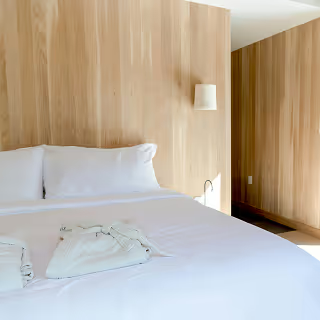
Incorporating sustainability into your Airbnb branding can not only appeal to a growing segment of eco-conscious travelers but also contribute positively to the environment. Sustainable practices in your Airbnb listing can differentiate your brand, create a unique selling proposition, and resonate with guests who value environmental responsibility.
Understanding the Appeal of Sustainable Accommodations
- Growing Eco-Consciousness: There is a growing trend of travelers seeking eco-friendly accommodations. By branding your Airbnb as sustainable, you tap into this market and align with the values of these guests.
- Positive Impact: Sustainable practices demonstrate a commitment to reducing environmental impact, which can enhance your brand's reputation and appeal.
Implementing Sustainable Practices in Your Airbnb
- Eco-Friendly Amenities: Use biodegradable or reusable products, such as bamboo toiletries, organic linens, and eco-friendly cleaning supplies.
- Energy Efficiency: Invest in energy-efficient appliances, LED lighting, and smart thermostats to reduce energy consumption.
- Water Conservation: Install low-flow showerheads and toilets, and encourage guests to use water responsibly.
- Waste Reduction: Provide recycling bins and composting options. Minimize single-use plastics and offer guests reusable shopping bags or containers.
- Support Local and Sustainable Businesses: Stock your Airbnb with products from local, sustainable businesses, such as locally roasted coffee or handmade soaps.
Communicating Your Sustainability Efforts
- Highlight Sustainability in Your Listing: Clearly mention your sustainable practices in your Airbnb listing. Explain how guests can participate in these efforts during their stay.
- Educate Your Guests: Provide information on the importance of sustainability and how your practices contribute to environmental conservation.
- Use Sustainable Branding Elements: Incorporate eco-friendly themes into your branding materials, such as using recycled paper for your welcome booklet or digital check-in instructions to reduce paper waste.
Communicating Your Sustainability Efforts
- Highlight Sustainability in Your Listing: Clearly mention your sustainable practices in your Airbnb listing. Explain how guests can participate in these efforts during their stay.
- Educate Your Guests: Provide information on the importance of sustainability and how your practices contribute to environmental conservation.
- Use Sustainable Branding Elements: Incorporate eco-friendly themes into your branding materials, such as using recycled paper for your welcome booklet or digital check-in instructions to reduce paper waste.
Cultural Sensitivity in Branding
In today’s globalized world, Airbnb hosts often welcome guests from diverse cultural backgrounds. Demonstrating cultural sensitivity in your branding and operations is not only a mark of respect but also enhances the appeal of your listing to a wider audience. Being culturally sensitive can help in creating an inclusive and welcoming environment for all guests, which is crucial for building a positive brand reputation.
Understanding the Importance of Cultural Sensitivity
- Broad Appeal: A culturally sensitive approach shows that you are considerate and accommodating of different cultural norms and preferences, which can attract a more diverse range of guests.
- Positive Guest Experiences: By being mindful of cultural differences, you can avoid misunderstandings and ensure that all guests feel respected and comfortable during their stay.
Incorporating Cultural Sensitivity into Your Airbnb
- Research and Education: Take the time to learn about the cultural norms and expectations of your potential guests. This could involve understanding dietary restrictions, communication styles, or holiday customs.
- Inclusive Communication: Use language in your listing and communications that is inclusive and respectful. Avoid stereotypes and be mindful of cultural nuances in your interactions.
- Adaptable Amenities: Offer amenities that cater to a variety of cultural needs. For example, providing a selection of international TV channels, a prayer mat for Muslim guests, or clear information about food ingredients for guests with dietary restrictions.
- Decor and Atmosphere: Be mindful of your decor choices. Aim for a universally appealing and neutral decor while being careful not to inadvertently display items that might be culturally insensitive.
Communicating Your Cultural Sensitivity
- Highlight Your Efforts in Your Listing: Make a note in your listing about your commitment to cultural sensitivity and the specific steps you’ve taken to accommodate diverse needs.
- Feedback and Adaptation: Encourage feedback from guests about how you can improve in this area. Be open to making changes based on the feedback received.
- Show Respect in All Interactions: From initial inquiries to check-out, ensure that all interactions with guests are conducted with respect and consideration for their cultural background.
Benefits of Cultural Sensitivity in Branding
- Enhanced Reputation: A reputation for being culturally sensitive can enhance your brand’s appeal, particularly among international travelers or those looking for an inclusive and respectful host.
- Repeat Business and Referrals: Guests who feel respected and well-cared-for are more likely to return and recommend your listing to others.
- Personal Growth: Embracing cultural sensitivity can be a rewarding experience, offering personal growth and a deeper understanding of the diverse world we live in.
Incorporating cultural sensitivity into your Airbnb branding is not just about expanding your market; it’s about creating a space where all guests, regardless of their background, feel valued and welcomed. This approach not only enhances guest satisfaction but also contributes to a more inclusive and understanding global community.
The Role of Technology in Enhancing Your Airbnb's Brand


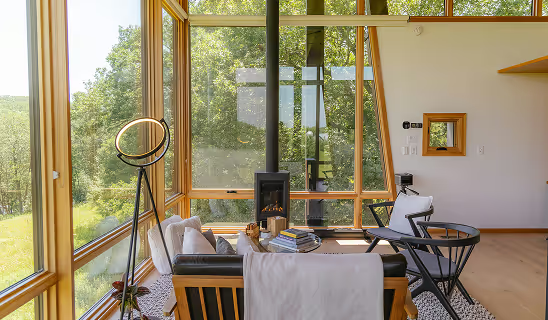
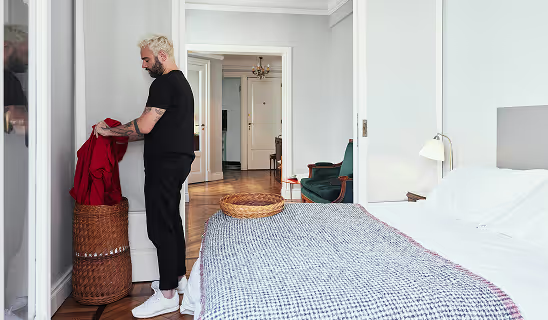








Embracing technology is not just about staying current; it's a strategic move that can significantly enhance your Airbnb's brand and guest experience. In a world where digital convenience is highly valued, incorporating the latest technological advancements into your Airbnb can set you apart and make your listing more attractive to tech-savvy travelers.
Integrating Smart Home Technology
- Smart Locks for Easy Check-In: Offer guests the convenience of self-check-in with smart locks. This not only adds a layer of security but also provides a seamless arrival experience.
- Smart Thermostats for Comfort: Use smart thermostats to maintain a comfortable temperature in your Airbnb. This not only ensures guest comfort but also demonstrates your commitment to energy efficiency.
- Voice-Controlled Assistants: Devices like Amazon Echo or Google Home can provide guests with easy access to information, music, and control over smart home features.
Leveraging Technology for Communication and Entertainment
- High-Speed Wi-Fi: A fast and reliable internet connection is a must-have for most travelers, whether they’re business guests needing to work or leisure travelers streaming their favorite shows.
- Streaming Services and Smart TVs: Provide access to streaming services like Netflix or Hulu. This adds an element of home-away-from-home comfort for guests.
- Online Guestbooks and Guides: Replace traditional paper guestbooks with digital versions. Provide online guides with information about your property and local recommendations, accessible via QR codes or online links.
Using Technology to Enhance Branding
- Customized Experiences: Use technology to offer customized experiences. For example, smart lighting systems that allow guests to change the ambiance to suit their mood can be a unique selling point.
- Digital Communication: Utilize apps or platforms for streamlined communication with your guests. This can include digital check-in instructions, welcome messages, and quick responses to queries.
- Feedback and Reviews: Implement digital solutions for collecting guest feedback and reviews. This can be through automated emails post-stay or through apps that facilitate leaving reviews.
Staying Ahead with Tech Trends
- Keep Updated: Stay informed about the latest technology trends in hospitality. This can help you continually enhance your offering and keep your brand relevant.
- Balance Tech with Personal Touch: While technology can greatly enhance the guest experience, balance it with personal interaction. A quick message or a personal welcome note can add warmth to the high-tech experience.
- Market Your Tech Features: In your listing and marketing materials, highlight the technological features of your Airbnb. This can attract guests who value these modern conveniences.
Incorporating technology into your Airbnb not only enhances the guest experience but also positions your brand as modern, innovative, and guest-centric. It shows that you are forward-thinking and committed to providing convenience and comfort, making your listing stand out in a crowded market. As technology continues to evolve, staying abreast of and adapting to these changes can keep your Airbnb at the forefront of the industry.
Want to learn more about brand platforms, Brand Strategy and Brand Identity? Keep reading!
If you need help with your companies brand strategy and identity, contact us for a free custom quote.
Collaborative Branding: Partnering with Local Businesses to Enhance Your Airbnb's Appeal

Collaborative branding, or forming partnerships with local businesses, can significantly enhance the appeal and experience of your Airbnb listing. By aligning with local cafes, restaurants, tour operators, and other businesses, you can offer your guests unique, localized experiences while also strengthening your brand's connection to the community.
Benefits of Collaborative Branding
- Enhanced Guest Experience: Partnerships with local businesses can provide your guests with special offers, discounts, or unique experiences, making their stay more memorable.
- Community Integration: Collaborating with local businesses helps integrate your Airbnb into the local community, offering guests an authentic experience.
- Mutual Promotion: These partnerships can be mutually beneficial in terms of promotion. Local businesses gain exposure to your guests, while your Airbnb can be recommended by these businesses to their customers.
Strategies for Forming Local Partnerships
- Identify Potential Partners: Look for businesses that align with your brand and can offer value to your guests. This could include local eateries, tour guides, rental services, or cultural venues.
- Create Tailored Offers: Work with these businesses to create special offers or packages for your guests. For example, a discount at a nearby restaurant or a customized tour package.
- Promote Local Events and Activities: Stay informed about local events and activities. Share this information with your guests and explain how they can participate, possibly in collaboration with your local partners.
- Develop Co-Branding Opportunities: Consider co-branding opportunities such as welcome baskets with local products, co-hosted events, or featuring local artwork in your Airbnb.
Communicating Collaborations to Guests
- Include Information in Your Listing: Update your Airbnb listing and guest communications to include information about your local partnerships and what they offer.
- Create a Local Guidebook: Develop a guidebook or digital guide that highlights your local partners and what guests can expect from them.
- Leverage Social Media: Use your social media platforms to promote your local partnerships, sharing stories, and posts about the experiences they offer.
Maintaining and Growing Partnerships
- Regular Communication: Maintain regular communication with your partners to ensure the relationship remains mutually beneficial and to stay updated on any new offerings or changes.
- Feedback Loop: Encourage guests to provide feedback on their experiences with your local partners. This can help in refining the offerings and ensuring high-quality experiences.
- Expand Network: Continuously look for new partnership opportunities to expand and diversify the experiences available to your guests.
Collaborative branding through local partnerships not only enriches the guest experience but also embeds your Airbnb within the fabric of the local community. It's a strategy that celebrates local culture and businesses, offering guests an authentic and memorable stay while also contributing to the local economy. By leveraging these partnerships, you can elevate your brand, differentiate your listing, and create a network of mutual support that benefits all parties involved.
Personal Branding for Airbnb Hosts: Building Your Personal Brand Online
As an Airbnb host, your personal brand is a vital component of your overall branding strategy. It's about how you present yourself and your property to the world, and it plays a crucial role in attracting guests. Building a strong personal brand online can enhance trust, credibility, and appeal to potential guests, making your listing stand out.
Understanding the Importance of Personal Branding
- Building Trust: A strong personal brand helps build trust with potential guests. When guests feel like they know and understand their host, they are more likely to book.
- Differentiating Your Listing: Your personal brand can set your listing apart, highlighting your unique qualities as a host and what makes your property special.
- Creating a Connection: A relatable and authentic personal brand can create a connection with potential guests, making your listing more appealing.
Strategies for Developing Your Personal Brand
- Define Your Unique Selling Points: What makes you a unique host? Is it your local knowledge, your exceptional hospitality, your interesting background, or your passion for travel? Identify these points and use them to shape your personal brand.
- Be Authentic: Authenticity is key in personal branding. Be genuine in your interactions and communications. Share real stories and experiences that reflect your personality and hosting style.
- Professional Online Presence: Ensure your online presence, including your Airbnb profile, social media accounts, and any personal blogs or websites, is professional and reflects your personal brand.
- Engage with Your Audience: Regularly engage with your audience through social media, blogs, or direct communication. This can include sharing travel tips, updates about your property, or local insights.
Leveraging Your Personal Brand in Marketing
- Incorporate Your Brand into Your Listing: Use your Airbnb listing to showcase your personal brand. This can include a personal bio that highlights your unique qualities as a host.
- Use Social Media: Share content that reflects your personal brand on social media. This can help potential guests get to know you and what you offer as a host.
- Content Creation: Consider creating content such as blog posts, videos, or podcasts that align with your personal brand and provide value to your audience.
Maintaining and Evolving Your Personal Brand
- Stay Consistent: Consistency is important in personal branding. Ensure your messaging and style remain consistent across all platforms.
- Gather Feedback: Listen to feedback from guests and use it to refine and improve your personal brand.
- Stay Updated: Keep your personal brand updated with your latest experiences, learnings, and improvements in your hosting style.
Building a strong personal brand as an Airbnb host is about more than just marketing; it's about creating a genuine and lasting connection with your guests. By effectively communicating who you are and what you stand for, you can attract guests who resonate with your brand, leading to more satisfying hosting experiences and potentially more bookings. Remember, your personal brand is an extension of your Airbnb listing, and nurturing it can significantly contribute to your success as a host.
Understanding Your Audience: Market Research Strategies for Airbnb Hosts
For Airbnb hosts, understanding your audience is crucial for tailoring your branding and marketing efforts effectively. Conducting market research helps you gain insights into who your potential guests are, what they are looking for, and how best to reach them. This knowledge allows you to make informed decisions about how to position your Airbnb listing to attract the right guests.
The Importance of Market Research
- Identifying Guest Preferences: Understanding the preferences and expectations of your target market enables you to tailor your listing and services to meet their needs.
- Competitive Analysis: Researching the market helps you understand what your competitors are offering and identify opportunities to differentiate your listing.
- Trend Awareness: Keeping up with market trends ensures that your Airbnb remains relevant and appealing to potential guests.
Effective Market Research Strategies
- Analyze Guest Data: Look at the data available from your past guests. Analyze their demographics, the purpose of their travel, feedback, and any patterns or common preferences.
- Survey Potential and Past Guests: Create surveys to gather information from past and potential guests. Ask questions about their preferences, expectations, and experiences.
- Monitor Online Platforms: Keep an eye on travel forums, social media, and review sites to understand what guests are saying about their travel experiences, including what they value in an Airbnb stay.
- Study Your Competitors: Look at other Airbnb listings in your area. Note what they offer, their pricing, their branding, and how they communicate with their audience.
- Attend Industry Events: Participate in local tourism events, webinars, and workshops. These can be valuable sources of information about travel trends and guest expectations.
Applying Research Insights to Your Branding
- Tailor Your Listing: Use the insights gained from your research to refine your listing. This could involve updating your description, amenities, or even the style of your property to better appeal to your target audience.
- Develop Targeted Marketing Strategies: Craft marketing and promotional strategies that resonate with your target market. This could include targeted social media ads, collaborations with businesses that appeal to your audience, or creating content that addresses their specific interests.
- Personalize Guest Experiences: Use your understanding of your guests to personalize their experience. This could range from personalized welcome notes to recommendations for activities and attractions that align with their interests.
Evolving with Your Audience
- Continuous Learning: Market trends and guest preferences can change over time. Continuously gather and analyze data to keep your offerings and marketing strategies up-to-date.
- Adapt and Innovate: Be willing to adapt your Airbnb experience based on the insights you gather. This might mean making changes to your property, the services you offer, or the way you communicate with guests.
Understanding your audience through effective market research is a dynamic and ongoing process that can significantly enhance your Airbnb's appeal. By staying informed about your guests' needs and preferences, and continuously adapting your offering to meet these, you can create a more targeted, appealing, and successful Airbnb experience.
Extending the Brand Beyond Accommodation: Creating a Lifestyle Around Your Airbnb
In the competitive world of Airbnb hosting, distinguishing your listing involves more than just offering a place to stay; it's about creating a lifestyle brand that resonates with your guests. This approach extends the appeal of your Airbnb beyond mere accommodation, offering guests an immersive experience that aligns with their interests and aspirations.
The Concept of a Lifestyle Brand
- Beyond the Basics: A lifestyle brand transcends the basic offering of a bed and a roof. It embodies a certain ethos or way of life that appeals to your target audience, whether that's luxury, adventure, relaxation, culture, or eco-friendliness.
- Emotional Connection: Lifestyle branding aims to create an emotional connection with guests, making your Airbnb a part of their identity or aspirational self-image.
Strategies for Creating a Lifestyle Brand
- Define Your Lifestyle Theme: Identify a lifestyle theme that aligns with your property and target audience. This could be anything from a tranquil wellness retreat to an adventurous explorer's base.
- Tailor the Experience: Every aspect of your Airbnb should reflect this lifestyle theme, from the decor and amenities to the activities and experiences you recommend or offer.
- Create Themed Packages: Develop packages or experiences that align with your lifestyle theme. For example, if your theme is wellness, you could offer yoga retreat packages, spa services, or healthy cooking classes.
- Partner with Like-Minded Businesses: Collaborate with businesses that complement your lifestyle theme. This could include local artisans, tour operators, or restaurants that enhance the overall experience of your guests.
Marketing Your Lifestyle Brand
- Storytelling through Content: Use your website, blog, and social media to tell stories that embody your lifestyle theme. Share guest experiences, local insights, and tips that align with the lifestyle you are promoting.
- Visual Branding: Ensure that your visual branding, including photographs and marketing materials, reflects the lifestyle theme of your Airbnb.
- Engage with Your Audience: Build a community around your lifestyle brand. Engage with your audience on social media, create content that resonates with them, and encourage them to share their experiences.
Evolving with Your Guests
- Stay Updated: Keep abreast of trends and changes in your chosen lifestyle theme. This ensures that your brand remains relevant and appealing.
- Feedback and Adaptation: Regularly seek feedback from your guests about their experience and be open to making adjustments to enhance your lifestyle branding.
- Expand Your Offerings: Continuously look for ways to expand and enhance the experiences and services that support your lifestyle brand.
Creating a lifestyle brand around your Airbnb allows you to offer more than just accommodation; you provide an experience that guests seek out for its alignment with their personal interests and values. This approach not only enhances the appeal of your listing but also fosters deeper guest engagement, leading to more memorable stays and potentially higher rates of repeat bookings. By embracing the concept of a lifestyle brand, you elevate your Airbnb from a place to stay to a destination in its own right.
Conclusion: Elevating Your Airbnb Brand to New Heights
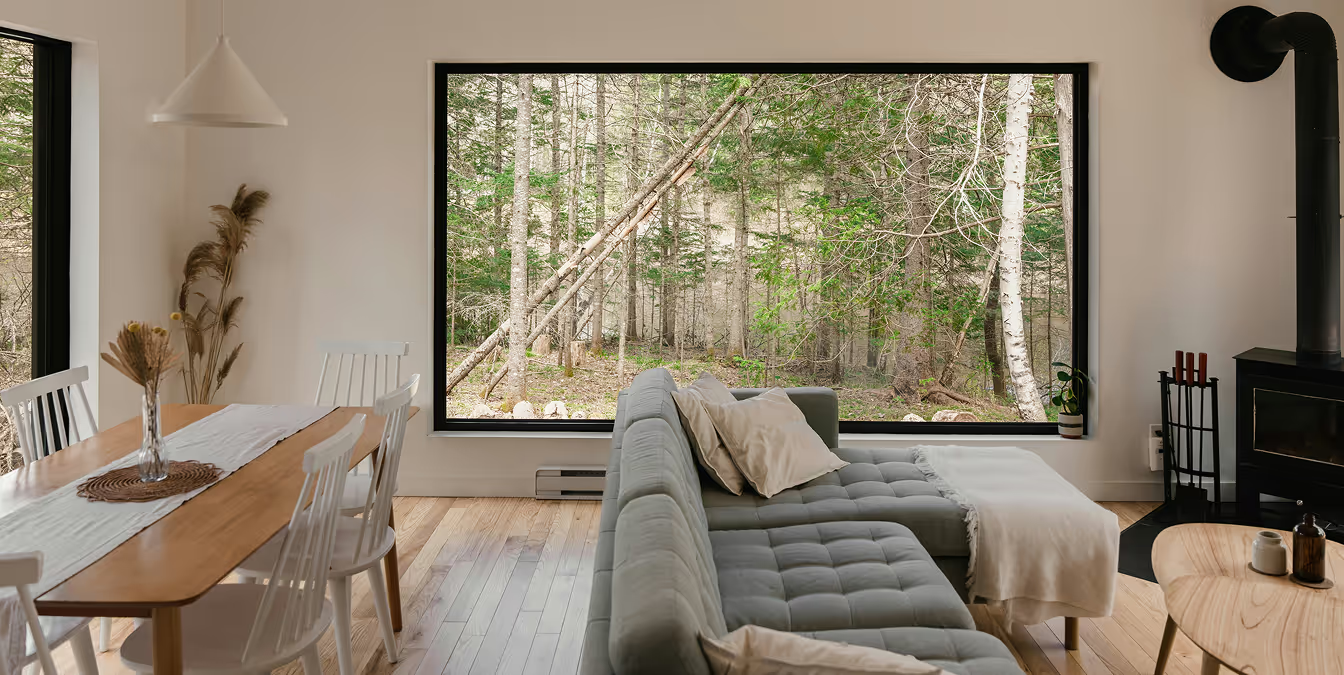
As we conclude our exploration of effective branding strategies for Airbnb hosts, it's clear that creating a successful Airbnb brand involves much more than just listing a property. It's about crafting a compelling narrative, understanding and leveraging technology, engaging with guests through personalized experiences, and extending the essence of your brand beyond mere accommodation.
From the art of storytelling that captures the unique essence of your space to the strategic use of SEO for enhanced visibility, each element plays a pivotal role in defining your brand. The integration of smart technology not only adds convenience and efficiency but also positions your brand as modern and guest-centric. Collaborative branding with local businesses enriches the guest experience, embedding your Airbnb within the local community and culture.
Personal branding for hosts is crucial in building trust and connection with guests, while understanding your audience through market research ensures that your offerings resonate with their preferences and needs. Extending your brand to encompass a lifestyle experience transforms your Airbnb from a simple place to stay into a destination that aligns with your guests' aspirations and interests.
In implementing these strategies, remember that the essence of a great brand lies in its ability to connect with guests on a personal level. Your Airbnb is more than just a place to stay; it's an experience, a story, and a journey that you share with your guests. By focusing on these aspects, you transform your listing from a mere space into a sought-after destination.
The journey to a successful Airbnb brand is multifaceted and continuous. It requires creativity, adaptability, and a deep understanding of your guests' desires. By applying the insights and strategies discussed, you are well-equipped to create an Airbnb brand that not only stands out but also stands the test of time, attracting guests and creating memorable experiences for years to come.
In conclusion, the path to elevating your Airbnb brand involves a blend of strategic thinking, creative execution, and ongoing engagement with your guests and the broader community. By embracing these principles, you can turn your Airbnb listing into a thriving, dynamic brand that captivates and delights travelers from around the world.

Sloane Avery
As entrepreneurs, they’ve built and scaled their own ventures from zero to millions. They’ve been in the trenches, navigating the chaos of high-growth phases, making the hard calls, and learning firsthand what actually moves the needle. That’s what makes us different—we don’t just “consult,” we know what it takes because we’ve done it ourselves.
Want to learn more about brand platform?
If you need help with your companies brand strategy and identity, contact us for a free custom quote.
We do great work. And get great results.
+2.3xIncrease in revenue YoY
+126%Increase in repurchase rate YoY








+93%Revenue growth in first 90 days
+144% Increase in attributed revenue


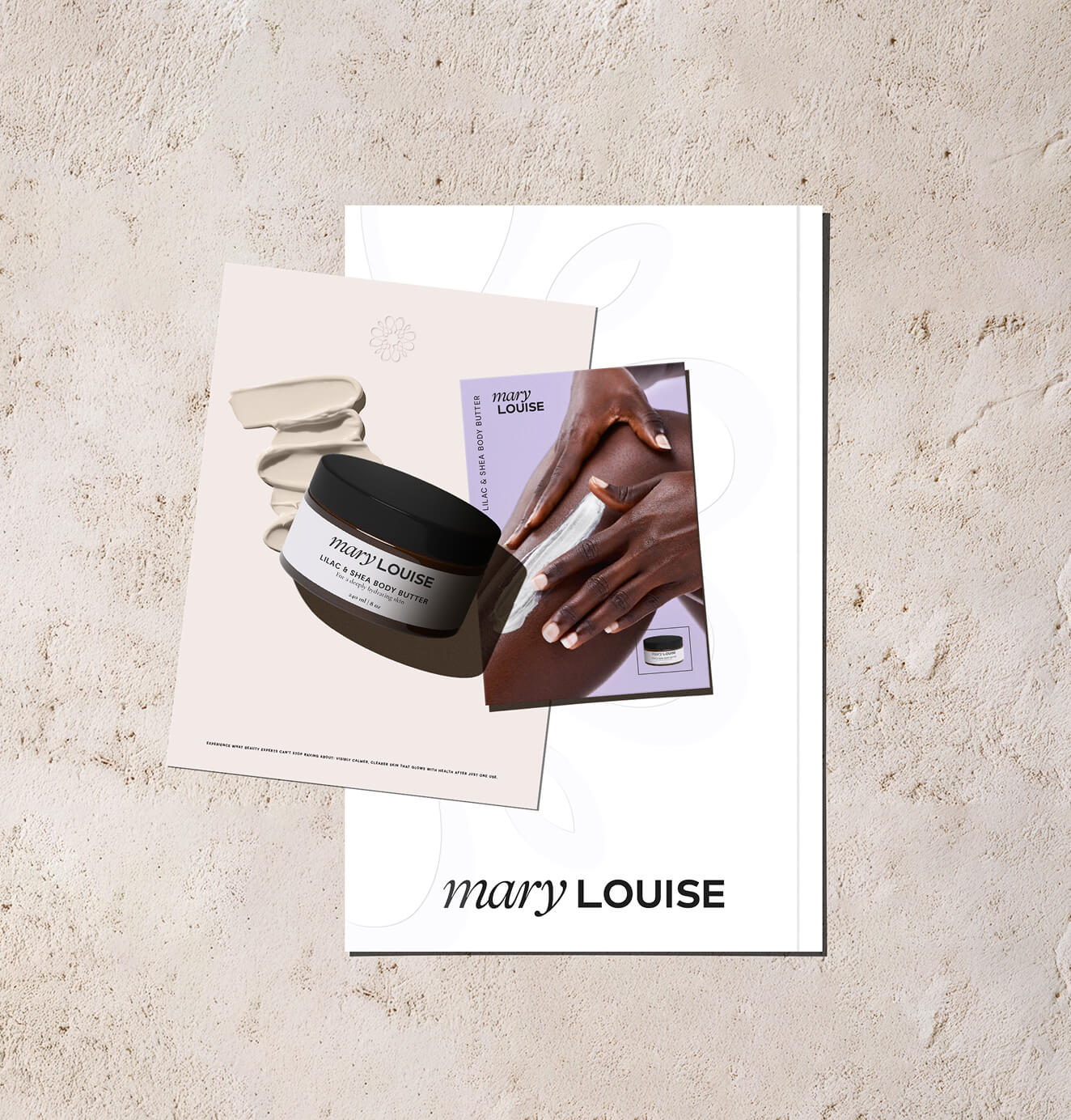





+91%Increase in conversion rate
+46%Increase in AOV








+200%Increase in conversion rate
+688%Increase in attributed revenue












